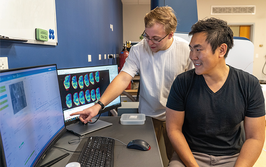Fear and Loathing in Las Ciencias
How broad are the legal duties of analytical laboratories and what do recent developments in US law mean for labs around the world?
Among the many legal developments over the past six months or so, two US court decisions stand out for their likely implications for the scientific community.

The first decision, Landon v. Kroll Laboratory Specialists, Inc., was decided by the New York Court of Appeals and is significant for its holding that a lab has a duty to report test results accurately. More specifically, the court determined that misreporting can support a damages claim by an alleged drug user against the lab.
In Landon v. Kroll, the complexity stemmed from the fact that the lab had no contractual relationship with the alleged drug user. Plaintiff Landon had been convicted of a crime and sentenced to five years of conditional probation, with one of the conditions being that he submit to random drug testing. The county’s probation department had a contract with Kroll to conduct the test using oral fluid samples. Kroll performed the analysis and reported a positive test result. Later the same day, Landon secured an independent blood test, which produced a negative result. However, the probation department brought proceedings against Landon on the basis of Kroll’s result.
And so, Landon filed a suit alleging that Kroll had negligently issued its test report and acted “as part of a policy of deliberate indifference to his rights.” The scientific basis for Landon’s claim was that the screen test cutoff level Kroll used – 1 ng/ml – was substantially lower than that level recommended by Orasure (the maker of the analytical device) and the United States Department of Health and Human Services Substance Abuse and Mental Health Services Administration (SAMHSA) of 4.0 ng/ml. The complaint alleged that Kroll had failed to disclose these differences in its report. The complaint further claimed that, despite New York State Department of Health Laboratory Standards requiring samples to be subject to confirmatory testing through the use of gas chromatography-mass spectrometry, Landon’s sample was not subject to any type of confirmation test before Kroll reported Landon’s positive test result.
Systemic negligence
Landon alleged the additional criminal proceedings against him were the result of “systemic negligence in Kroll’s substance abuse testing practices.” He asserted that he was required to serve an extended probationary term, which resulted in a loss of his freedom as well as emotional and psychological harm and monetary loss (for example, attorneys’ fees).
The primary question before the court was whether Landon’s claim could go forward. The court noted that Kroll performed exactly as the county had required in its contract. Since the lab’s contract was with the county, the issue became whether Kroll owed a duty of care directly to Landon such as would support his claim under tort law. A tort is a civil wrong that is recognized by law as grounds for a lawsuit.
In reaching its decision, the court noted that although the existence of a contractual relationship by itself is generally not a source of tort liability to third parties, there are certain circumstances where a duty of care is assumed to individuals outside the contract. The court stressed that the duty to avoid harm to others is distinct from the contractual duty of performance. The court found the alleged harm to Landon was not remote or attenuated because it was his own biological specimen that was the sole subject of the lab’s testing and he was directly harmed by the positive test result.
Defining “duty”
However, Judge Pigott, writing a two-judge dissent against the court’s majority opinion, stated that the definition of “duty” used was too broad because the relief Landon sought would be better directed at the probation department than the lab. Judge Pigott noted that the lab complied with its contractual obligations and it was the probation department’s use of the test result, not the way the lab conducted it, that caused the plaintiff’s alleged harm.
While Judge Pigott’s dissent is not precedential authority, it may be persuasive to other courts evaluating a lab’s duties. It remains to be seen whether other courts will follow the New York Court of Appeals majority opinion or the dissent’s contrary reasoning. In any case, it is important for analytical laboratories to be mindful that they could be at risk to third parties in negligent testing cases.
“Don’t ask me. I only work here…”
The second decision comes from the United States Circuit Court of Appeals for the Seventh Circuit and is perhaps of more broad interest, serving as a portend of change.
Disturbed that the magistrate judge, the district court judge, the plaintiff’s lawyer, and the defense lawyer all accepted as medical fact something that could not have been true, the Jackson v. Pollion court devoted the bulk of its opinion to chastising not only the judges and lawyers in the case before them, but the legal profession generally.
“This lapse is worth noting because it is indicative of a widespread, and increasingly troublesome, discomfort among lawyers and judges confronted by a scientific or other technological issue,” Circuit Judge Richard Posner wrote in the opinion, to which Circuit Judge Frank Easterbrook agreed.
The opinion was particularly critical of the magistrate judge and district judge in the case, suggesting that they should have made “some investment in learning about the condition.” Posner, writing for the majority, noted that the lower court judges could have used their authority under Federal Rule of Evidence 706 to appoint a neutral expert witness, required the plaintiff to present expert evidence, or just consulted a reputable medical treatise. In noting that procedural wrangling and protracted discovery had caused this “plainly meritless suit” to drag on for more than four years, the court indicated that “[a] stronger judicial hand on the tiller could have saved a good deal of time, effort, and paper.”
The underlying lawsuit involved a claim by an inmate of an Illinois prison that his civil rights had been violated when he did not receive hypertension medication for a period of about three weeks. He sued a nurse practitioner and a correctional counselor, alleging that they had been deliberately indifferent to his serious medical condition and, as a result, had subjected him to cruel and unusual punishment. The lower district court judge granted summary judgment in favor of the defendants and dismissed the suit. The district court judge found that neither defendant was deliberately indifferent to the plaintiff’s condition.
Undisputed reliance on science
Within the first paragraph of its opinion, the Seventh Circuit affirmed the district judge’s ruling, saying that it was “so clearly correct as to not require elaboration by us.” While the opinion could have stopped there, Posner instead chose to continue writing multiple pages of dictum, which is an authoritative statement without any binding effect. The court’s dictum criticized the judges and lawyers involved for their scientific lapse concerning the plaintiff’s claim (that his three weeks without hypertension medication caused him to suffer loss of vision, nose bleeds, headaches and lightheadedness, and exposed him to the possibility of a stroke or even death). Noting that the plaintiff was an otherwise healthy 22-year-old man and that the single reading of his blood pressure during the three-week period showed it to be only slightly elevated above normal range, the opinion indicated that the lack of medication could not have produced the symptoms – “The proposition . . . has no support in the record or the medical literature,” the opinion noted. Despite this, the magistrate judge found that, if the case went to trial, the plaintiff could have established that his period without medication was “objectively serious.” Likewise, the district court judge concluded that the plaintiff “suffered from an objectively serious medical condition.” The Seventh Circuit opinion stressed that the lower court judges could have decided the case without ruling on any medical questions, relying entirely on the lack of evidence of deliberate indifference by either defendant. “But if they were going to venture an opinion on the ‘objective seriousness’ of the plaintiff’s ‘medical condition,’ they had to get the condition right – which was not hypertension but the medical consequences, in fact negligible, of a three-week deprivation of medicine for mild, early-stage hypertension.”
Significantly, Posner commented that the “discomfort of the legal profession, including the judiciary, with science and technology is not a new phenomenon. Innumerable are the lawyers who explain that they picked law over a technical field because they have a ‘math block.’” He also noted cause for concern at the extraordinary rate that scientific or technological advances featured in litigation. “The legal profession,” Posner concluded, “must get over its fear and loathing of science.”
In his concurring opinion, Circuit Judge William Bauer confessed that he is one of those lawyers who chose law over medicine because of a lack of interest in the clinical aspects of medicine, but stated that he would have concluded the opinion after the first paragraph, without discussing lawyers’ fear of science. “I think that the opinion made the necessary legal point when it said that the record shows that summary judgment was clearly the right decision.” Bauer wrote. “That’s where I would stop.”
While the Seventh Circuit’s decision does not have direct precedential effect, it could signal the beginning of a new era in which judges, juries and lawyers set aside their fear of scientific and technical issues, with intent to challenge all aspects of science. How would that affect you?
Lawrence “Larry” D. Mason is a senior shareholder of the national civil litigation law firm of Segal McCambridge Singer & Mahoney.
When Larry Mason rejected a music scholarship to pursue his love of percussion and jazz, he opted instead to prepare for a legal education through undergraduate degrees in Economics and Political Science at the University of Illinois. His non- music undergraduate education took root and Larry continued on to obtained his law degree in 1989.“After nearly 25 years of helping businesses solve their litigation problems throughout the US, I take most pride in making the complex simple. I always leverage my non-scientific/technical background to achieve optimum results because if I can understand a complicated issue, I can more easily present it to juries and judges.” When not in the courtroom, Larry hones his skills as an actor in community theatre productions throughout the Chicagoland area.

















